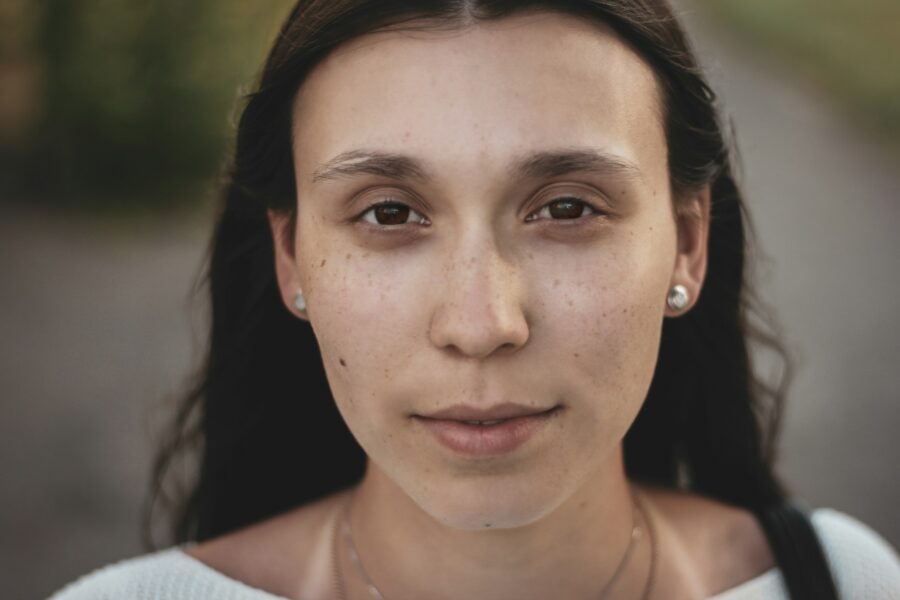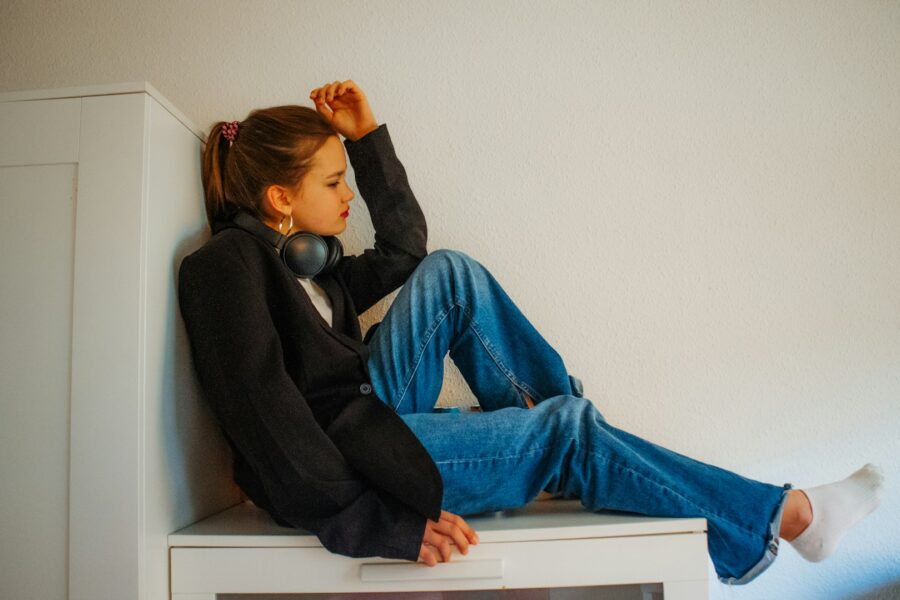We’ve all heard the advice: get eight hours a night, go to bed at the same time, avoid screens.

Those aren’t necessarily bad habits to form, but the truth is, sleep isn’t a one-size-fits-all situation. Your ideal sleep pattern is as personal as your fingerprint, and the more we learn, the clearer it becomes that individual needs vary wildly. Here’s why the classic, one-size-fits-all sleep advice might not actually be all that helpful for you, and why you need to dig deeper into what works for your body in particular.
1. Chronotypes aren’t just about “morning people” and “night owls.”

Everyone has an internal clock, but it turns out those clocks are wired a little differently for each of us. Some people genuinely feel sharp at 6 a.m., while others don’t hit their mental stride until the evening.
Trying to force yourself into a sleep schedule that doesn’t match your natural rhythm can leave you feeling permanently off, even if you’re technically getting enough hours. Honouring your body’s unique clock might be the key to better energy, mood, and focus.
2. Genetics play a bigger role than we assumed.
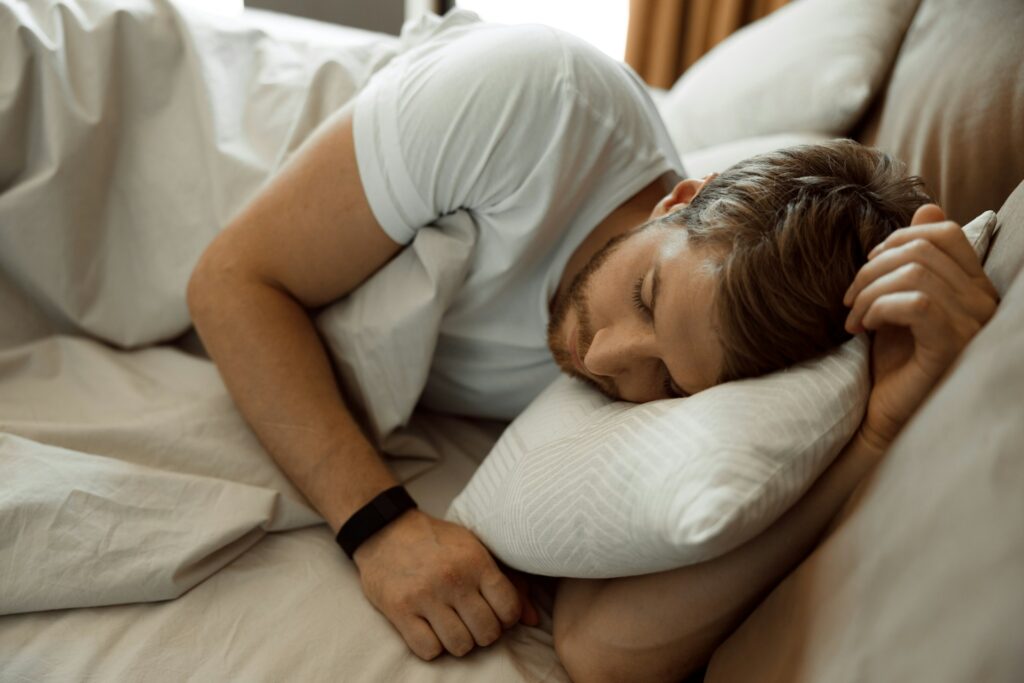
Your DNA can influence everything from how much sleep you need to how deeply you sleep and how sensitive you are to caffeine or light exposure. Some people truly thrive on six hours; others can barely function without nine. Instead of comparing sleep habits with your partner, your friends, or wellness influencers online, it’s more useful to tune into how you feel. Sleep need isn’t a competition—it’s a personal baseline.
3. Life stage changes what rest looks like.

In your twenties, you might bounce back from a late night with ease. Of course, as you get older, or move through hormonal changes, parenting demands, or high-stress seasons, your sleep needs shift. We often expect our bodies to function on old habits, even when our lives have changed completely. However, the sleep that served you five years ago might not work anymore—and that’s not failure. It’s biology.
4. Emotional load changes sleep quality, not just quantity.
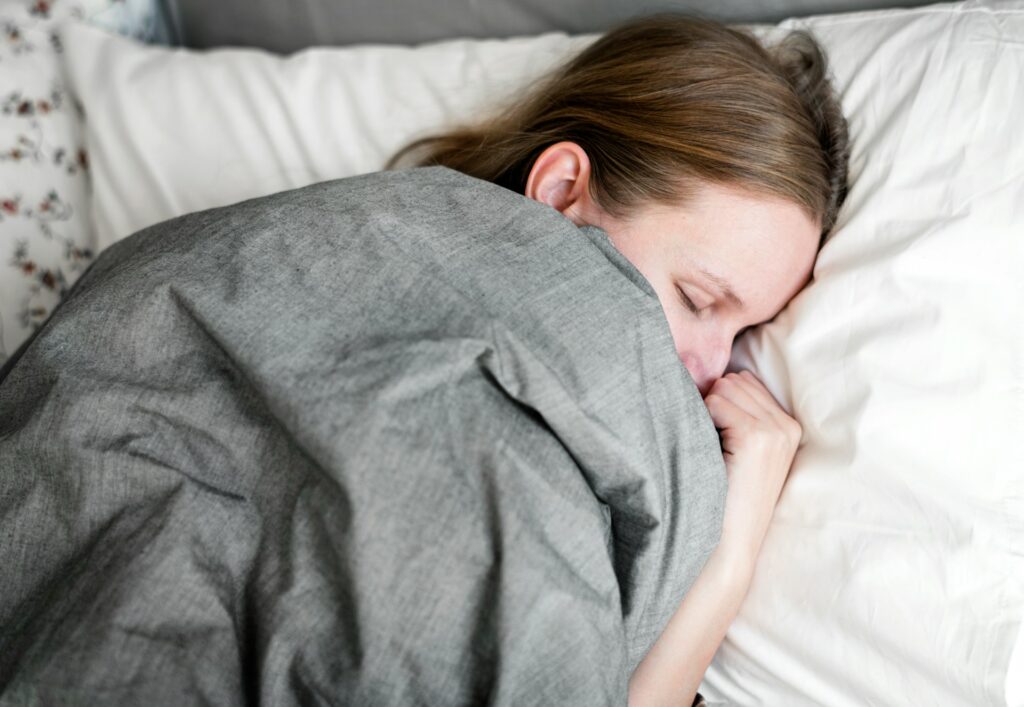
You might clock eight hours but still wake up feeling exhausted. That’s because your brain processes emotional stress while you sleep, and heavy mental loads can fragment that rest, even if you’re technically unconscious all night. People with caregiving roles, anxiety, or chronic stress often report lighter sleep, more vivid dreams, and frequent waking. It’s not laziness or bad habits; it’s your brain working overtime behind the scenes.
5. Sleep cycles vary naturally from person to person.

A full sleep cycle—moving from light sleep to deep sleep to REM—takes around 90 minutes, but the number of cycles people need differs. Some feel great after four; others need six to feel whole. What matters more than hitting a magic hour count is whether you’re completing enough cycles to feel mentally and physically refreshed. Tracking how you feel after different amounts of sleep is often more useful than aiming for a rigid total.
6. Your body remembers trauma through sleep.
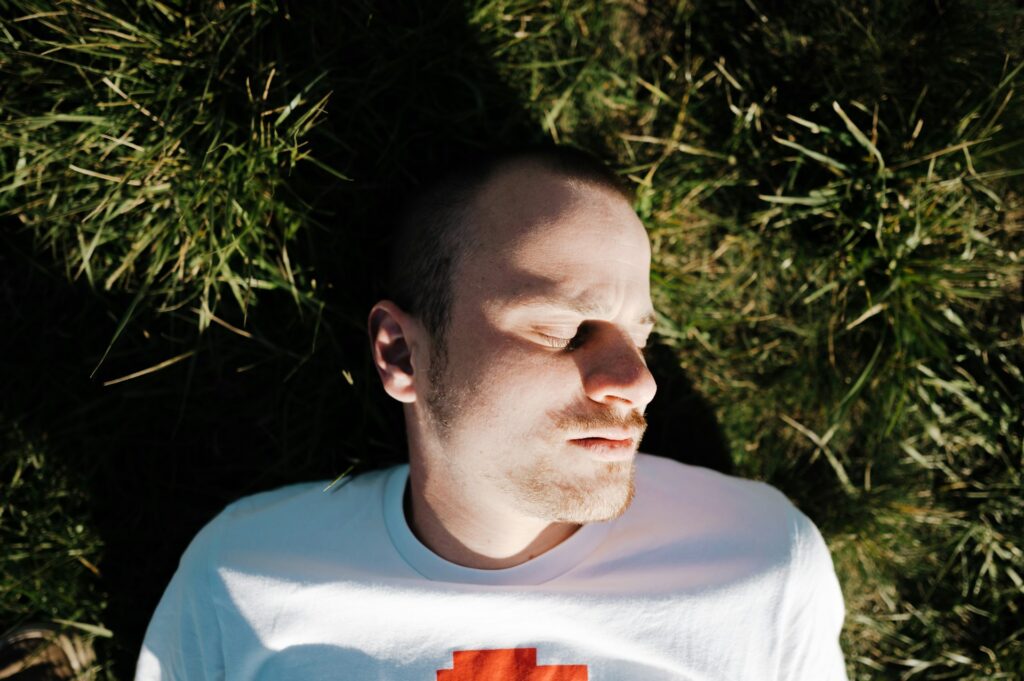
For people who’ve experienced trauma or long-term stress, sleep can become disrupted in quiet but powerful ways. Nighttime becomes unsafe, dreams become intense, or falling asleep takes longer because the nervous system is still on alert. If your body resists sleep, or wakes you up in the early hours, it might be a form of self-protection, not dysfunction. Healing sleep patterns often requires emotional work, not just earlier bedtimes.
7. Productivity culture has warped our relationship with rest.
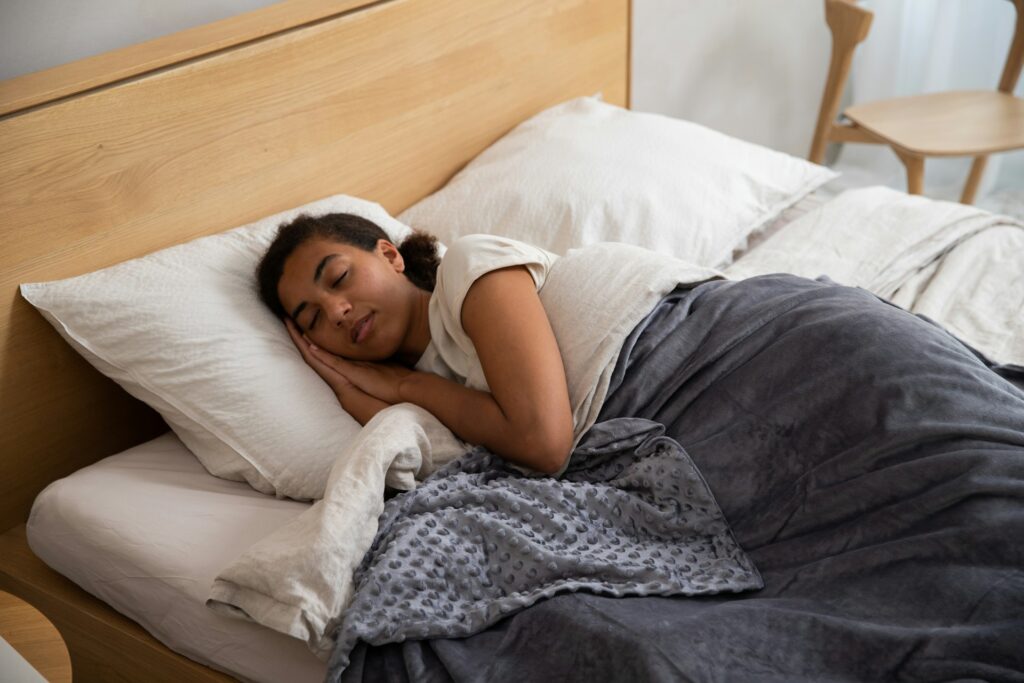
We live in a world that glorifies hustle and “five hours and coffee” routines. For many, sleep becomes something to minimise, optimise, or feel guilty about, rather than honour as essential maintenance. That mindset leads people to ignore personal cues in favour of fitting in. But your sleep is a form of health care, not laziness. For some, reclaiming rest means unlearning years of internalised pressure to always be “on.”
8. Food, medication, and movement all impact sleep differently.
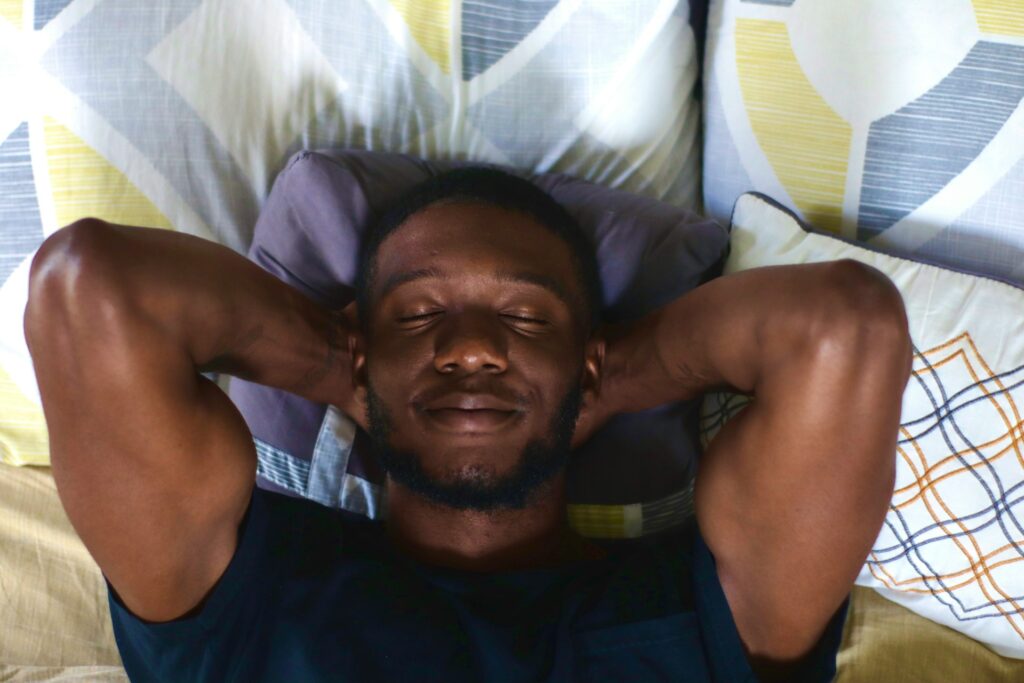
One person might fall asleep easily after a late workout. Another might feel too wired to rest. Some sleep better with carbs at night, while others do best with light meals. Even vitamins or medications can have drastically different effects. Sleep isn’t just about establishing a regular bedtime—it’s influenced by your full 24-hour routine. Knowing what you respond well to takes time and curiosity. The key isn’t following rules, it’s noticing patterns.
9. Some people naturally wake during the night, and that’s okay.
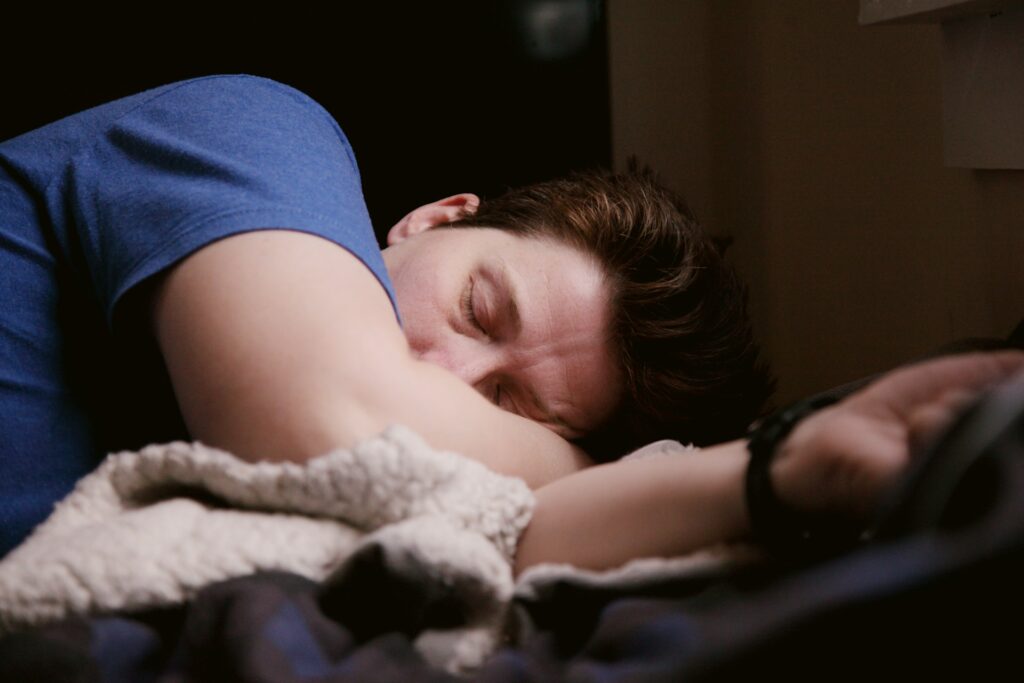
There’s a common belief that waking up during the night is a problem. However, for many, especially those with “biphasic” sleep patterns, a brief wake-up around 2 to 4 a.m. is completely normal. Historically, people often slept in two phases—dozing, waking for a bit, and then sleeping again. If you’re waking gently and falling back asleep easily, it might not be an issue at all. Fighting it could be more stressful than accepting it.
10. How rested you feel is a better measure than how long you slept.

You could get seven hours and feel brilliant, or you could sleep nine and wake up like you’ve been hit by a bus. The number of hours is just one piece of the puzzle. Instead, pay attention to your body’s real feedback—your mood, focus, hunger, and irritability levels. Trusting your inner signals is what helps you build a sleep routine that actually supports you, rather than chasing a number that might not even apply to your life.
